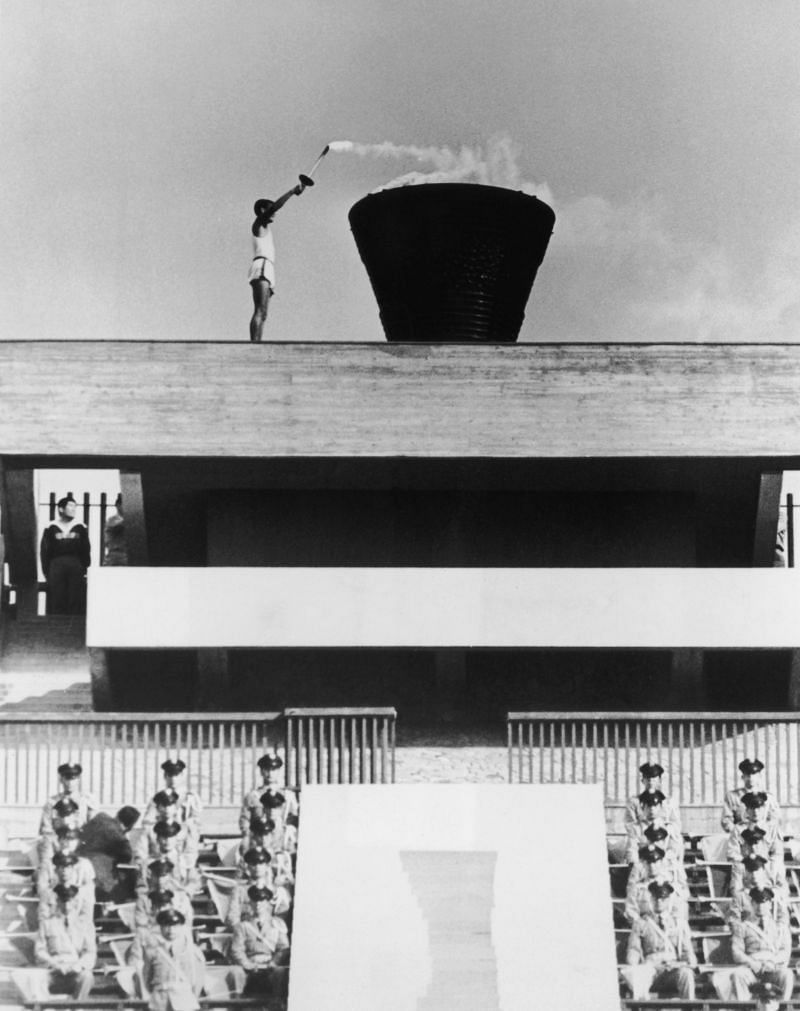
Know Your Olympics - Tokyo Olympics 1964
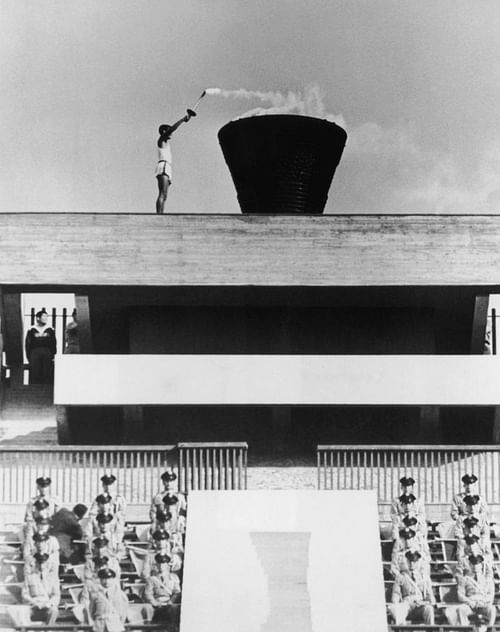
The Olympics before the Tokyo Games of 1964 had usually been a European reserve. Yes, they were held in Melbourne in 1956. But even Australia was a British dominated country. It took 68 years since the inception of the Summer Olympics for the quadrennial event to arrive in Asia.
The Olympics had almost arrived in Asia in 1940, had World War II not played spoilsport. However, by 1964, things had changed for the better. The world was moving towards better things. People had better goals for once. As such, Japan had the perfect opportunity to make a better image through the Tokyo Olympics, and they did so in style.
The Tokyo Games were as iconic as the ones held in London in 1948. Held from 10 to 24 October, the Tokyo Olympics were another revolution of its own. They were the first to be telecast internationally without the need for tapes to be flown overseas, as they had been for the 1960 Olympics four years earlier.
The Tokyo Games were also the first Olympic Games to have color telecasts, albeit partially. Certain events such as sumo wrestling and judo matches, sports popular in Japan, were tried out using Toshiba's new color transmission system, but only for the domestic market.
When the Tokyo Games opened, two interesting events happened. The Japanese flag was raised to 15.21 meters. This was a tribute to the legacy of Mikio Oda, Japan and Asia's first Olympic champion.
The other interesting incident was the lighting of the Olympic flame by Yoshinori Sakai. He was born in Hiroshima on the same day as the USA dropped the atom bomb on Japan. He was Japan's symbol of peace.
The Olympics was also known as the Olympics of upsets. Billy Mills, a relatively unknown tribal from America, shocked the world when he clinched the gold medal for USA in the men's 10000 m. event, a feat that has never been repeated since.
Ann Packer, a British runner who never ran 800 meters before Tokyo, was lagging behind in the initial lap, but shocked everyone with her ferocious sprint, creating a world record in her debut race.
The Tokyo Olympics also saw the return of Indian hockey in style. Written off on their own as 'done and dusted', the 'Men in Blue' were on a personal mission. Out to avenge their humiliation in Rome, they defeated Pakistan in a way that is worthy to be portrayed in a film or at least in a web series.
Slugfest, media hitjobs, infighting, underdog victories, you name it and this tournament had it.
Here are some more interesting facts from the Tokyo Olympics of 1964
#1 A golden farewell by Osamu Watanabe -
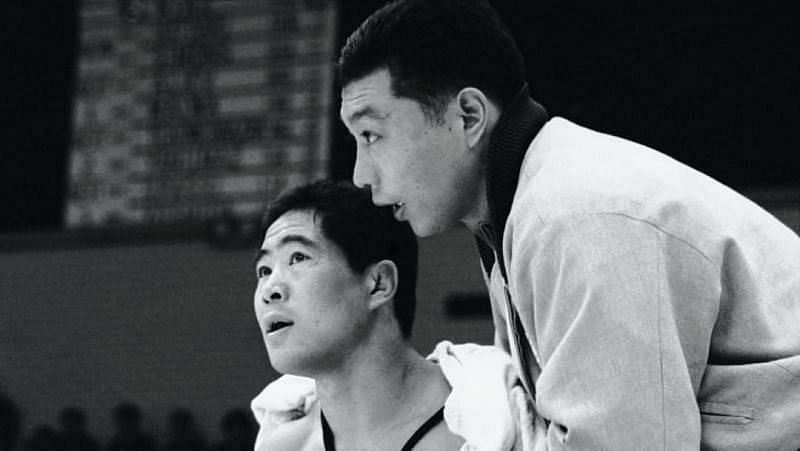
189-0. What is this?
This is the score of Osamu Watanabe. A 24 year old wrestler, he competed in the 63 kg. featherweight category. He won the gold medal and immediately announced his retirement.
So, what is special about that? Osamu Watanabe is one of the rare few wrestlers, who retired from the competition without a single defeat in his entire career. Yes, not once in his entire career did Osamu Watanabe suffer a single loss. Wherever he went, he came back with a gold medal.
Osamu Watanabe made his international debut in 1962. He took part in the World Wrestling Championships, and won. He took part at the Jakarta Asian Games, and won the gold medal there as well.
However, it was only at the Tokyo Olympics, that his pristine record acquired a new high, and he won the gold medal. However, he surprised one and all by choosing to retire at that very point.
His international career was almost spotless, and he was one of the rarest Olympic champions to have remained undefeated. The only Japanese who somehow emulated his record was female wrestler Kaori Icho, who remained undefeated from Athens in 2004 to Rio in 2016.
#2 Last Olympics to use cinder tracks -
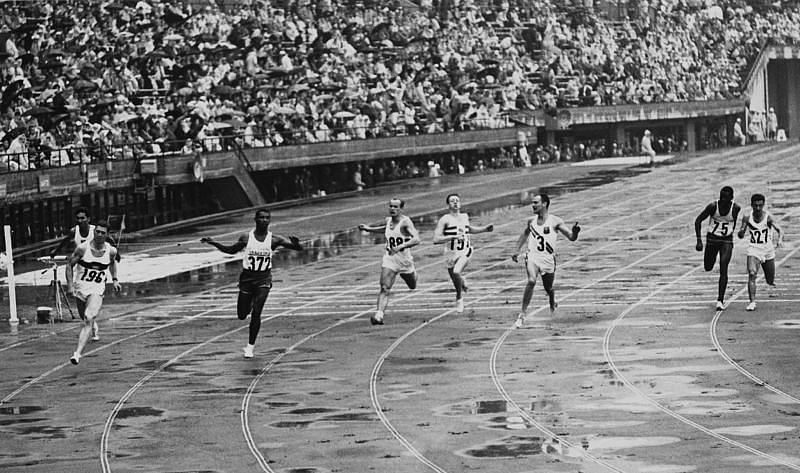
The Tokyo Olympics were also the last ones to use cinder tracks for the running events in athletics. Cinder tracks were a mixture of cinder, clay and mud, that were introduced at the Amsterdam Olympics in 1928.
Before the Amsterdam Olympics, there was no standardization in either the material or the length of the tracks. However, by the Amsterdam Olympics, cinder tracks that measured exactly 400 meters in length came up. The only disadvantage with them was that like cricket pitches, they could be affected by the weather. They were also harder to run on, and it took more effort for the runner on the same.
At the Tokyo Olympics in 1964, for one last time, cinder tracks were used for athletics. These were also the first Olympics, where fiberglass poles were used for pole vault events. By the time the Mexico Olympics came up, things changed for the better. Weather proof: synthetic tracks came up, and instead of sand and paper, a foam-based landing system was created. Athletics was safer and more competitive than before.
#3 Ann Packer and her surprise record -
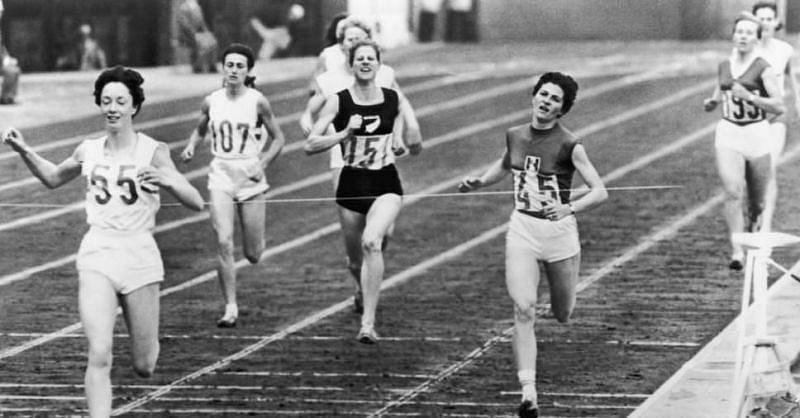
The Tokyo Olympics isn't known as the Olympics of upsets just like that. Many champions emerged, who were least expected to win even an Olympic medal, forget the gold.
One such champion was British runner Ann Packer Brightwell. A middle distance runner, she competed in the 400 meters and the 800 meters events. She was a favorite of the 400 meters. However, she was beaten by Betty Cuthbert, who ran her farewell race in style.
Before the Tokyo Olympics, Ann Packer had no prior experience in the 800 meters. She wasn't even interested, just content with her silver from the 400 meters. However, somehow she was goaded by her fiancee, Robert Brightwell, who was a part of the British relay squad, to participate. Another Olympian, who was a part of the Indian relay squad, happened to notice her performance. He predicted, 'Ann, you will win'.
Guess what? Ann did, and she broke the world record as well, something nobody expected. Did you know who that prophetic man was? He was our very own 'Flying Sikh', Milkha Singh! He even turned up to congratulate Ann, when she won the race, and even broke the world record for the Women's 800 meters!
#4 Billy Mills and his unexpected victory -
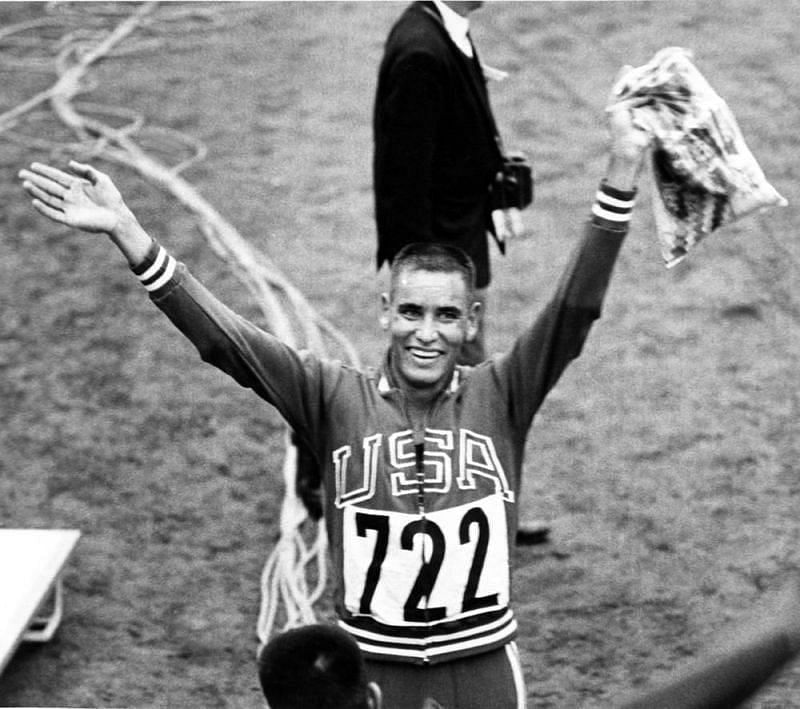
Another man whose victory shocked the world was Billy Mills. Now USA is well known for their prowess in athletics. Nobody can beat them when it comes to sprints. However, never did anyone think that they could beat the world in long distance running as well.
Billy Mills was one such man who dared to do so. An orphan, born into the Sioux tribe, Billy Mills was a member of the US Marine Commando Force. He had made it to the Tokyo Olympics, and competed in the marathon and 10000m.
However, nobody expected a medal from him, forget the gold. The favorite for the event was world record holder Ron Clarke from Australia. Apart from Ron, anyone who could claim the Olympic gold medal that year was defending champion Pyotr Bolotnikov of the Soviet Union, and Murray Halberg of New Zealand, who had won the 5,000m at the Rome Olympics in 1960.
During the race, Billy followed the turtle tactic - slow and steady. With two laps to go, only two runners were still with Clarke. Billy Mills initially appeared to be too far back to be in contention. Ron Clarke at the end failed to catch Gammoudi, but Mills pulled out to lane 4 and sprinted past them both.
His winning time of 28:24.4 was almost 50 seconds faster than he had run before and set a new Olympic record for the event. No American had before won the 10,000m, nor did any other American come close.
#5 The return of Indian hockey - a journey worthy of a memorable biopic or web series -
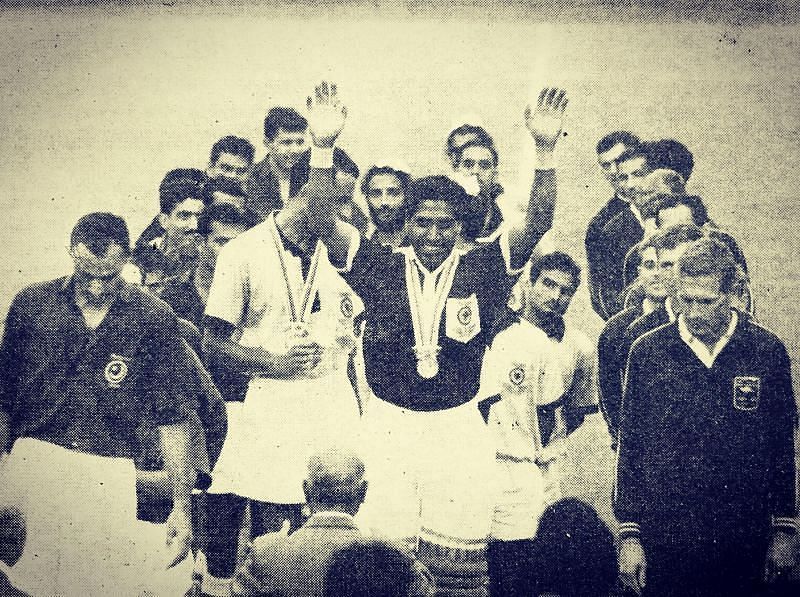
The Tokyo Olympics also saw something that is worth a memorable biopic or a gripping web series. It was a victory for the Indian hockey team against Pakistan - a journey that is worthy of whistles, popcorn and a lot more.
We all know how Indian hockey's golden chariot was brought to a gyrating halt at the Rome Olympics. However, between the Rome Olympics, and the Tokyo Olympics, a lot had changed for India.
India was invaded by China in 1962. If that was enough, the first Prime Minister, Jawaharlal Nehru, breathed his last in May 1964, only months before the Tokyo Olympics was to begin. As such, India had less than four months to prepare for the mega event.
The country was in shambles. Nobody was interested in the Olympics. To make matters worse, Pakistan rubbed salt on the wounds by boldly proclaiming that they would win another gold medal at Tokyo. As such, Tokyo has now become a matter of prestige for Team India.
The team had a wobbly start, drawing two matches against Spain and Germany. However, they bounced back in style, defeating Belgium, Netherlands, Malaysia, Canada and Hong Kong on the trot.
India face Australia in the semifinals. Despite the odds, India triumphed, defeating the Kookaburras in style by 3-1. They faced Pakistan in an extremely violent final, LITERALLY. Against all odds, India triumphed, defeating Pakistan by an exact score of 1-0. Mohinder Lal converted a penalty stroke into the winning goal.